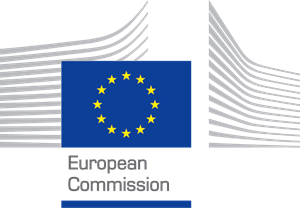Analyzing air pollution and respiratory disease correlation with AI

CLIMAIR: Climate change and air contamination: Artificial Intelligence applied on the correlation between air pollutants and non-communicable respiratory diseases in Europe
ClimAIr project leverages Artificial Intelligence (AI) to advance the empirical understanding of the nexus between climate change, air pollution, and noncommunicable respiratory diseases. The initiative is focused on aggregating and analyzing data pertaining to greenhouse gas concentrations, disaster risks, air quality, and the incidence of respiratory diseases to inform and enhance public health interventions.
In the development of AI models, ClimAIr employs Federated Learning (FL) techniques to maintain the confidentiality of patient information. This approach allows for the collaborative yet private training of AI algorithms across disparate datasets, ensuring that sensitive patient data remains secure and is not centrally stored or shared.
The application of ClimAIr’s research extends to the creation of a specialized AI-powered tool designed for health workers, urban planners, and policymakers. This tool is intended to facilitate evidence-based decision-making that promotes healthier environments and aims to reduce the prevalence of respiratory diseases. Rigorous testing and validation of the tool in select municipalities will confirm its practicality and effectiveness in a variety of urban contexts.
ClimAIr is committed to influencing policy through the dissemination of actionable insights, fostering public awareness, and equipping relevant stakeholders with the tools necessary to enact positive environmental and health outcomes. The project’s success lies in its ability to translate complex data analyses into tangible strategies that mitigate the health impacts of environmental factors, thereby contributing to the overall well-being of European citizens.
Our main tasks
- Project coordination and management of daily activities.
- Management of exploitation and innovation strategies.
- Analysis and conclusion of the correlation between air pollution and non-communicable diseases (NCDs).
- Implementation of Federated Learning models.
- Evaluation of the impact of climate change scenarios on health outcomes.
Partners
ARISTOTELIO PANEPISTIMIO THESSALONIKIS | BUKOVINIAN STATE MEDICAL UNIVERSITY | CENTRE HOSPITALIER UNIVERSITAIRE DE TOULOUSE | CHARITE | COMUNE DI GENOVA | DCS COMPUTING | EAACI | EURO ATLANTIC DIPLOMACY SOCIETY | FIMABIS | IDENER.AI | ILMATIETEEN LAITOS | KEYDATA BİLGİ İŞLEM | KNEIA | KU LEUVEN | LUXEMBOURG INSTITUTE OF HEALTH | REMOTE SENSING SOLUTIONS | SERVICIO ANDALUZ DE SALUD | THERAMED HEALTHCARE | TRILATERAL RESEARCH | UNIVERSITA DEGLI STUDI DI MILANO | UNIWERSYTET MEDYCZNY W LODZIStart date – finish date
01 / 2025 - 12 / 2028

This project has received funding from the European Union’s Horizon 2020 research and innovation programme under grant agreement Nº 101156799

